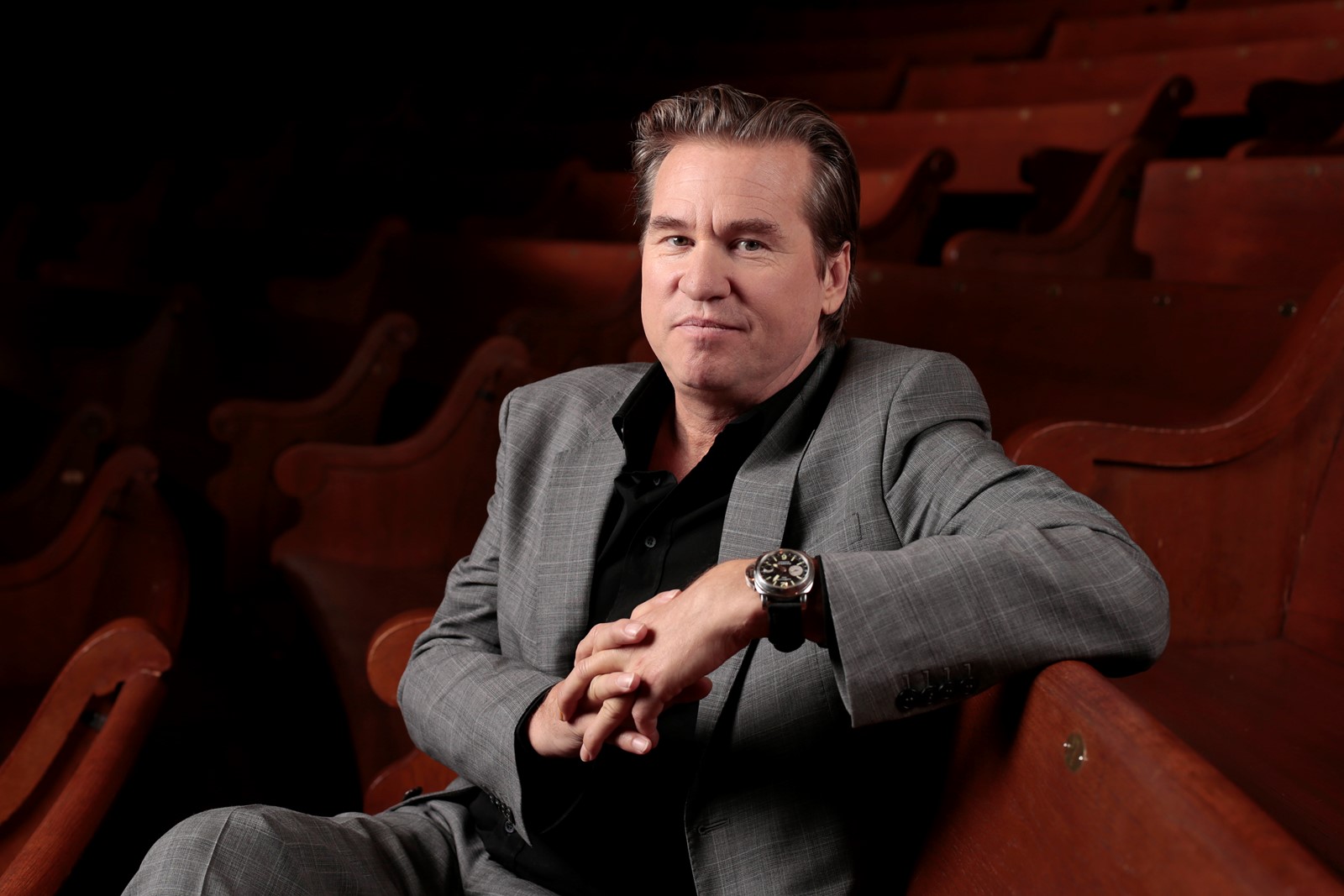
LOS ANGELES — Val Kilmer, the brooding, versatile actor who played fan favorite Iceman in “Top Gun,” donned a voluminous cape as Batman in “Batman Forever” and portrayed Jim Morrison in “The Doors,” died Tuesday night. He was 65.
Kilmer died in Los Angeles, surrounded by family and friends, said his daughter, Mercedes Kilmer. Kilmer died from pneumonia. He had recovered after a 2014 throat cancer diagnosis that required two tracheotomies.
Kilmer, who at 17 was the youngest actor ever accepted to the prestigious Juilliard School at the time he attended, experienced fame’s ups and downs more dramatically than most.
“I have behaved poorly. I have behaved bravely. I have behaved bizarrely to some. I deny none of this and have no regrets because I have lost and found parts of myself that I never knew existed,” he says toward the end of “Val,” the 2021 documentary on his career. “And I am blessed.”
His break came in 1984’s spy spoof “Top Secret!” followed by the comedy “Real Genius” in 1985. Kilmer would later show his comedy chops again in films, including “MacGruber” and “Kiss Kiss Bang Bang.”
His movie career hit its zenith in the early 1990s as he made a name for himself as a dashing leading man, starring alongside Kurt Russell and Bill Paxton in 1993’s “Tombstone,” as Elvis’ ghost in “True Romance” and as a bank-robbing demolition expert in Michael Mann’s 1995 film “Heat” with Al Pacino and Robert De Niro.
Kilmer — who took part in the Method branch of Suzuki arts training — threw himself into parts.
When he played Doc Holliday in “Tombstone,” he filled his bed with ice for the final scene to mimic the feeling of dying from tuberculosis.
To play Morrison, he wore leather pants all the time, asked castmates and crew to only refer to him as Morrison and blasted the Doors for a year.
That intensity also gave Kilmer a reputation that he was difficult to work with — something he grudgingly agreed with later in life, while always defending himself by emphasizing art over commerce.
“In an unflinching attempt to empower directors, actors and other collaborators to honor the truth and essence of each project, an attempt to breathe Suzukian life into a myriad Hollywood moments, I had been deemed difficult and alienated the head of every major studio,” he wrote in his 2020 memoir, “I’m Your Huckleberry.”
One career nadir was playing Batman in Joel Schumacher’s goofy, garish “Batman Forever” (1995) with Nicole Kidman and Chris O’Donnell — before George Clooney took up the mantle for 1997’s “Batman & Robin” and after Michael Keaton played the Dark Knight in 1989’s “Batman” and 1992’s “Batman Returns.”
His next projects were the film version of the 1960s TV series “The Saint” — fussily putting on wigs, accents and glasses — and “The Island of Dr. Moreau” with Marlon Brando, which became one of the 1990s’ most infamously cursed productions.
David Gregory’s 2014 documentary “Lost Soul: The Doomed Journey of Richard Stanley’s Island of Dr. Moreau,” described a troubled set subject to a hurricane, Kilmer bullying director Richard Stanley, the firing via fax of Stanley (who sneaked back on set as an extra with a mask on) and extensive rewrites by Kilmer and Brando. The older actor told the younger at one point: “ ‘It’s a job now, Val. A lark. We’ll get through it.’ I was as sad as I’ve ever been on a set,” Kilmer wrote in his memoir.
Born Dec. 31, 1959, in Los Angeles, he attended Chatsworth High School alongside future Oscar winner Kevin Spacey and future Emmy winner Mare Winningham.
He dated Cher, and married and divorced actor Joanne Whalley. He is survived by their two children, Mercedes and Jack.


 PREVIOUS ARTICLE
PREVIOUS ARTICLE
